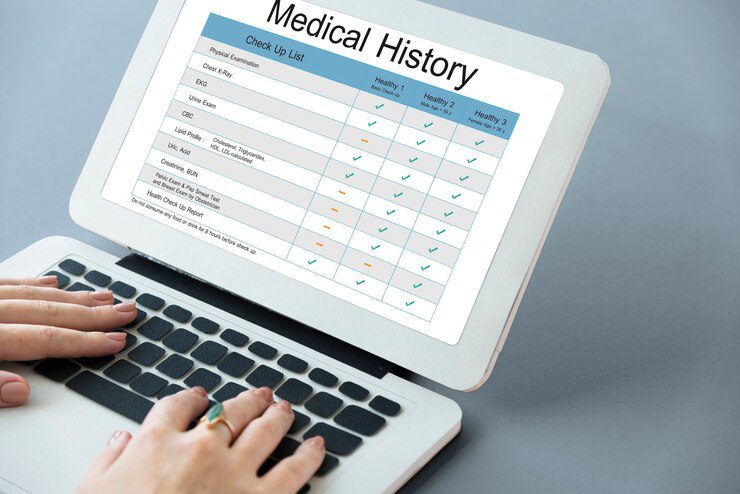Getting certified in billing and coding credentials will help you stand out from the competition when applying for jobs as billing and code specialists. Your ability to carry out this task successfully is attested to by this Medical billing Credentials. Gaining additional knowledge about this credentials and looking into your possibilities can help you become ready for a billing and coding career.
In this post, we define a billing and coding credentials, go over its advantages, and look at 11 various Coding Credentials that you might want to take into account.
What is a billing and coding credentials?
A Medical billing Credentials in online medical billing and coding from home is a type of professional credential that helps billing and coding experts demonstrate their knowledge to potential employers. Medical invoices, insurance claims, and payments are processed by a billing and coding specialist.
Hospitals and healthcare providers use the coded data they provide to apply for insurance company or government program payment. The coded data is then used by medical billers to create and send bills to insurance companies and patients.
Requirements to earn a Medical billing credentials
There are a few common prerequisites to obtain this Coding Credentials, while the exact requirements differ depending on the certifying organization or business. These requirements include:
Education: Prior education is frequently required in order to work in any medical specialty. A college degree from an approved university, such as an associate degree, and completion of your online medical medical billing and coding specialist medical coding billing online course are prerequisites for many Coding Credentials programs.
Experience: It is also a requirement for many Coding Credentials programs that you have previous job experience in the online medical billing and coding specialist industry. This experience might serve as proof that you are already familiar with the fundamentals of the industry and its specifications.
Exam: In order to obtain your Coding Credentials, certifying bodies usually require you to pass one or more exams. Depending on the company, there is usually a variation in the exam’s duration and question count.
Benefits of earning a Coding Credentials
The acquisition of this qualification has numerous advantages, such as:
Increased professional advancement: Some Coding Credentials can help you progress in your work more quickly by making you eligible for higher-paying jobs that provide more chances to demonstrate your leadership abilities.
Opportunities for networking: After finishing a Coding Credentials program, you could be able to connect with people who are already well-versed in their field as well as other prospective billing and coding specialists.
Adaptable choices: Billing and closure specialists have access to a wide range of qualifications, so you may select the one that most closely fits your professional goals and availability.
11 Online Medical billing and coding from home
These 11 Coding Credentials in billing and coding could help you advance in your profession. Please be aware that Indeed has no affiliation with any of the businesses featured in this article.
1. Professional in online medical billing and coding (CBCS)
This Coding Credentials, provided by the National Healthcareer Association (NHA), attests to your ability to assist the coding and billing process, assign codes for diagnoses and treatments, audit billing procedures to prevent fraud, and submit claims for reimbursement.
For novice medical coders and billing specialists, the CBCS is perfect. A high school degree or its equivalent is required to obtain the Coding Credentials, in addition to one year of supervised work experience or the successful completion of a online medical billing and coding specialist education program within the last five years.
In addition, candidates must finish a three-hour exam with 100 scored questions administered by the NHA. Regulatory compliance, claims processing, front-end responsibilities, payment adjudication, and applied coding knowledge are among the subjects covered in the exam. You can use the NHA’s materials to prepare for it. Every two years, a recertification fee and ten continuing education units (CEUs) are needed for Coding Credentials renewal.

2. Associate in Certified Coding (CCA)
The American Health Information Management Association (AHIMA) offers this credentials, which is advantageous for entry-level coders employed in medical offices and hospitals. It’s a nationally acknowledged benchmark for success in the field of health information management (HIM). To be eligible, you must have completed your high school education or its equivalent.
In addition, the AHIMA mandates that you finish a coding curriculum that has been approved by the organization as well as one that covers anatomy and physiology, self paced medical billing and coding online terminology, fundamental International Classification of Diseases (ICD) concepts, and Current Procedural Terminology (CPT) coding.
There are 115 total test items in the computer-based exam, and a score of at least 300 is required to pass. The test, which covers classification schemes, reimbursement procedures, and other crucial coding topics, gives you two hours to finish it. Using a codebook is required for the test. You can review online questions to help you get ready. Every two years, credentials must be renewed by completing 20 CEUs and paying the recertification cost.
3. Specialist in Certified Coding (CCS)
The AHIMA also offers this Coding Credentials, which attests to a candidate’s proficiency in identifying medical information in patient records in a hospital environment. Experts in billing and coding at the mid-level should consider this qualification.
Medical coding billing online course
Medical coding billing online course in anatomy and physiology, pathophysiology, pharmacology, self paced medical billing and coding online terminology, reimbursement methodology, intermediate and advanced ICD diagnostic coding, procedural coding, and medical services are required in order to be eligible for the CCS. In addition, you must have two years of experience in medical coding, one year of experience with a valid codingCoding Credentials, or one year of experience with the CCA billing credentials.
There are multiple-choice questions and a self paced medical billing and coding online scenario component on the computer-based test. Candidates have four hours in total to finish it. It is mandatory for candidates to present a valid codebook to the testing facility for the AHIMA. Every two years, a Coding Credentials fee and a total of 20 CEU hours are needed.

4. Physician-based Certified Coding Specialist (CCS-P)
In physician-based settings such as multispecialty clinics, specialty centers, doctor’s offices, and group practices, the CCS-P Coding Credentials attests to coding specialization. Professionals with a great deal of experience in billing and coding can benefit from this certification, which is offered by the AHIMA.
Applicants need to finish a medical coding training, medical coding billing online course that follows the CCS curriculum. As an alternative, you require a minimum of two years of experience in medical coding, a current CCS, another certification with a year of experience, or the CCA Coding Credentials with at least a year of experience.
The 97–121 total items on the computer-based test are multiple-choice and self paced medical billing and coding online scenario questions that assess knowledge, proficiency, and experience in medical billing. It takes four hours to finish, and candidates need to have a current codebook. Similar to previous AHIMA tests, passing with a score of 300 is required to get the certification.
5. Certified Coders for Inpatients (CIC)
Assigning self paced medical billing and coding onlinecodes for diagnoses and procedures carried out in an inpatient setting is a verified area of expertise for candidates holding this qualification. This certification attests to your proficiency with the ICD-10 Clinical Modification (CM) and Procedure Coding System (PCS).
This advanced certification covers hospital and facility inpatient coding topics and is offered by the American Academy of Professional Coders (AAPC). The AAPC requires you to be a current member and hold an associate degree in order to be eligible.
Given Time
Examinees have four hours to finish the forty multiple-choice questions and seven fill-in-the-blank inpatient case questions given by the AAPC. You must bring your own codebook to the exam and be familiar with how to correctly apply ICD-10-CM diagnosis codes as well as ICD-PCS procedure codes.

To pass, you must receive a score of at least 70%. The AAPC permits one retake at minimum. Every two years, 36 CEUs must be completed and an annual AAPC membership is required in order to renew.
6. CMC, or Certified Medical Coder
Through the Practice Management Institute (PMI), people who have completed advanced medical billing and coding online training in medical coding guidelines for outpatient claims can obtain the CMC certification. One year or more of experience in outpatient medical coding, or the successful completion of foundational medical billing and coding online training medical coding billing online course, are required for the PMI.
To find any knowledge gaps prior to medical billing and coding online training, it is required to complete the PMI medical coding assessment before applying. You can apply to take the exam once you’ve finished the assessment. Candidates have six hours to review questions, read codebooks, and submit answers according to the PMI. To pass that exam, you must receive a score of at least 70%.
7. The COC, or Certified Outpatient Coder
The COC certification, which is also provided by the AAPC, attests to a coder’s competence in assigning medical codes for treatments and operations carried out in hospital medical billing and coding specialist departments, outpatient surgery facilities, and outpatient hospital groups. Two years of experience in medical coding and an active AAPC membership are requirements.
You must pass the 100-question, multiple-choice test with a minimum score of 70% in order to receive the certificate. The AAPC gives test takers four hours to finish the exam. Every two years, 36 CEUs must be completed and an annual AAPC membership is required in order to renew.
8. A CPB, or Certified Professional Biller
This accreditation, provided by the AAPC, attests to the ability of a seasoned medical biller to oversee every facet of the revenue cycle. It guarantees that they have a deep comprehension of the many kinds of insurance plans and the know-how to implement payer policies, national coverage determinations (NCDs), and local coverage determinations (LCDs). A current AAPC membership is required for application, and the organization advises obtaining an associate degree.
With 135 multiple-choice questions, test takers get four hours to finish this exam. It takes a minimum of 70% to pass in order to be eligible for certification. Every two years, 36 CEUs and an annual AAPC membership are needed for renewal.
9. A Certified Professional Coder, or CPC
A wide range of subjects pertaining to the medical coding business are covered by the AAPC’s CPC certification, including procedure codes for medical claim coding and billing in doctor’s offices. The prerequisites include having at least two years of expertise in the medical coding field and being a current member of the AAPC.
An associate’s degree in medical medical billing and coding specialist is also advantageous.
The CPC test consists of 100 multiple-choice questions. Among the subjects covered are ICD-10-CM, the Health Care Common Procedure Coding System (HCPCS), radiography, pathology, assessment, and management. The Certified Professional Coder-Apprentice (CPC-A) version would be better suited for people who have never coded before. A minimum of 36 hours of CEUs every two years.
10. The CPMA, or Certified Professional Medical Auditor
The AAPC offers the CPMA certification, which attests to a person’s knowledge of the coding and documentation standards required to enhance the revenue cycle and healthcare procedures. It confirms that they are aware of the dangers of breaking the rules.
Expertise in coding concepts, medical documentation, fraud and abuse, and coding risk analysis is demonstrated by those who hold a CPMA. To be eligible, an individual must be an annual member of AAPC, and the organization suggests having at least two years of medical auditing experience.
Candidates have four hours to finish the 100 multiple-choice questions on the proctored exam. For those with a lot of auditing experience and medical coding expertise, this certification is great.
11. A CRC, or Certified Risk Adjustment Coder
The AAPC’s CRC certification validates the ability to evaluate patient risk scores for better patient outcomes and to examine and assign correct medical codes for diagnoses made by doctors and other licensed healthcare providers in a facility or office setting. It also demonstrates a coder’s comprehension of the anatomy, pathophysiology, and medical language required to code diagnoses, as well as the audit procedure for risk adjustment models. Membership in the AAPC is the major requirement.
Conclusion
Candidates get four hours to finish the 100 multiple-choice questions in the exam. Similar to previous AAPC tests, passing with a score of 70% is required to obtain the certification. Every two years, a minimum of 36 hours of CEUs are needed to renew a certification.





